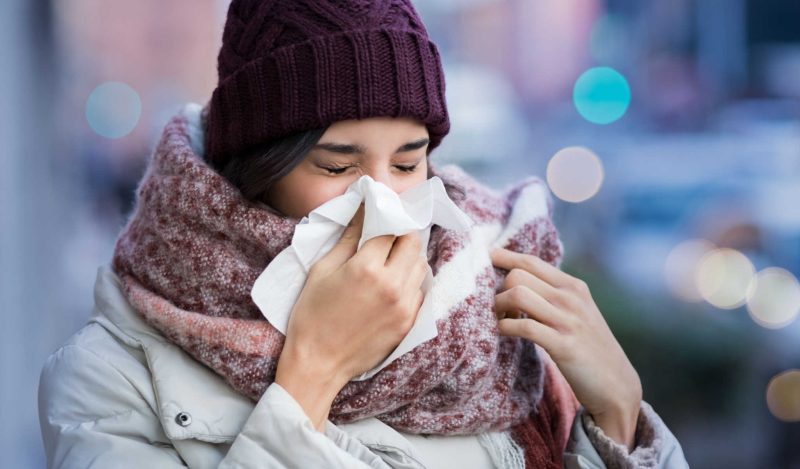COVID-19
Treat COVID-19 like the flu: new CDC guidelines

Press release from the CDC
CDC updates and simplifies respiratory virus recommendations
Recommendations are easier to follow and help protect those most at risk
CDC released today (Friday, March 1, 2024) updated recommendations for how people can protect themselves and their communities from respiratory viruses, including COVID-19. The new guidance brings a unified approach to addressing risks from a range of common respiratory viral illnesses, such as COVID-19, flu, and RSV, which can cause significant health impacts and strain on hospitals and health care workers. CDC is making updates to the recommendations now because the U.S. is seeing far fewer hospitalizations and deaths associated with COVID-19 and because we have more tools than ever to combat flu, COVID, and RSV.
“Today’s announcement reflects the progress we have made in protecting against severe illness from COVID-19,” said CDC Director Dr. Mandy Cohen. “However, we still must use the commonsense solutions we know work to protect ourselves and others from serious illness from respiratory viruses—this includes vaccination, treatment, and staying home when we get sick.”
As part of the guidance, CDC provides active recommendations on core prevention steps and strategies:
- Staying up to date with vaccination to protect people against serious illness, hospitalization, and death. This includes flu, COVID-19, and RSV if eligible.
- Practicing good hygiene by covering coughs and sneezes, washing or sanitizing hands often, and cleaning frequently touched surfaces.
- Taking steps for cleaner air, such as bringing in more fresh outside air, purifying indoor air, or gathering outdoors.
When people get sick with a respiratory virus, the updated guidance recommends that they stay home and away from others. For people with COVID-19 and influenza, treatment is available and can lessen symptoms and lower the risk of severe illness. The recommendations suggest returning to normal activities when, for at least 24 hours, symptoms are improving overall, and if a fever was present, it has been gone without use of a fever-reducing medication.
Once people resume normal activities, they are encouraged to take additional prevention strategies for the next 5 days to curb disease spread, such as taking more steps for cleaner air, enhancing hygiene practices, wearing a well-fitting mask, keeping a distance from others, and/or getting tested for respiratory viruses. Enhanced precautions are especially important to protect those most at risk for severe illness, including those over 65 and people with weakened immune systems. CDC’s updated guidance reflects how the circumstances around COVID-19 in particular have changed. While it remains a threat, today it is far less likely to cause severe illness because of widespread immunity and improved tools to prevent and treat the disease. Importantly, states and countries that have already adjusted recommended isolation times have not seen increased hospitalizations or deaths related to COVID-19.
While every respiratory virus does not act the same, adopting a unified approach to limiting disease spread makes recommendations easier to follow and thus more likely to be adopted and does not rely on individuals to test for illness, a practice that data indicates is uneven.
“The bottom line is that when people follow these actionable recommendations to avoid getting sick, and to protect themselves and others if they do get sick, it will help limit the spread of respiratory viruses, and that will mean fewer people who experience severe illness,” National Center for Immunization and Respiratory Diseases Director Dr. Demetre Daskalakis said. “That includes taking enhanced precautions that can help protect people who are at higher risk for getting seriously ill.”
The updated guidance also includes specific sections with additional considerations for people who are at higher risk of severe illness from respiratory viruses, including people who are immunocompromised, people with disabilities, people who are or were recently pregnant, young children, and older adults. Respiratory viruses remain a public health threat. CDC will continue to focus efforts on ensuring the public has the information and tools to lower their risk or respiratory illness by protecting themselves, families, and communities.
This updated guidance is intended for community settings. There are no changes to respiratory virus guidance for healthcare settings.
COVID-19
Crown still working to put Lich and Barber in jail

From LifeSiteNews
The Crown’s appeal claims the judge made a mistake in her verdict on the intimidation charges, and also in how she treated aggravating and mitigating factors regarding sentencing.
Government lawyers for the Crown have filed an appeal the acquittals of Freedom Convoy leaders Tamara Lich and Chris Barber on intimidation charges.
The Crown also wants their recent 18-month conditional sentence on mischief charges replaced with harsher penalties, which could include possible jail time.
According to the Justice Centre for Constitutional Freedoms (JCCF), it is “asking the Ontario Court of Appeal to enter a conviction on the intimidation charge or order a new trial on that count,” for Barber’s charges.
Specifically, the Crown’s appeal claims that the judge made a mistake in her verdict on the intimidation charges, and also in how she treated aggravating and mitigating factors regarding sentencing.
As reported by LifeSiteNews, both Lich and Barber have filed appeals of their own against their house arrest sentences, arguing that the trial judge did not correctly apply the law on their mischief charges.
Barber’s lawyer, Diane Magas, said that her client “relied in good faith on police and court direction during the protest. The principles of fairness and justice require that citizens not be punished for following the advice of authorities. We look forward to presenting our arguments before the Court.”
On October 7, Ontario Court Justice Heather Perkins-McVey sentenced Lich and Chris Barber to 18 months’ house arrest after being convicted earlier in the year of “mischief.”
Lich was given 18 months less time already spent in custody, amounting to 15 1/2 months.
Lich and Barber were declared guilty of mischief for their roles as leaders of the protest against COVID mandates in April 2022, and as social media influencers. The conviction came after a nearly two-year trial despite the non-violent nature of the popular movement.
The Lich and Barber trial concluded in September 2024, more than a year after it began. It was originally scheduled to last 16 days.
As reported by LifeSiteNews, the Canadian government was hoping to put Lich in jail for no less than seven years and Barber for eight years.
LifeSiteNews recently reported that Lich detailed her restrictive house arrest conditions, revealing she is “not” able to leave her house or even pick up her grandchildren from school without permission from the state.
As reported by LifeSiteNews, Lich, reflecting on her recent house arrest verdict, said she has no “remorse” and will not “apologize” for leading a movement that demanded an end to all COVID mandates.
COVID-19
Freedom Convoy leader Tamara Lich to appeal her recent conviction

From LifeSiteNews
Lawyers will argue that there is no evidence linking Tamara Lich ‘to the misdeeds of others.’
Freedom Convoy leader Tamara Lich said she will appeal her recent mischief conviction in an Ontario court, with her lawyers saying “there was no evidence linking her to the misdeeds of others.”
In a press release late yesterday, Lich’s legal team, headed by Lawrence Greenspon, Eric Granger, and Hannah Drennan, made the announcement.
“Lawyers for Tamara Lich filed Notice of Appeal in the Ontario Court of Appeal of the conviction for mischief arising out of the Freedom Convoy,” the release stated.
Lich’s legal team noted that there are two reasons for the principal grounds of appeal.
“While there was substantial evidence that Tamara encouraged the protesters to be peaceful, lawful and safe, there was no evidence linking her to the misdeeds of others,” they said.
The second reason for the appeal, according to Lich’s lawyers, is that the “trial judge failed to give effect to the principle that communication that would otherwise be mischief is protected by section 2(b) of the Charter, freedom of expression.”
On October 7, Ontario Court Justice Heather Perkins-McVey sentenced Lich and Chris Barber to 18 months’ house arrest after being convicted earlier in the year of “mischief.”
Lich was given 18 months less time already spent in custody, amounting to 15 1/2 months.
As reported by LifeSiteNews, the Canadian government was hoping to put Lich in jail for no less than seven years and Barber for eight years for their roles in the 2022 protests against COVID mandates.
Interestingly, Perkins-McVey said about Lich and Barber during the sentencing, “They came with the noblest of intent and did not advocate for violence.”
As reported by LifeSiteNews, Lich, reflecting on her recent sentencing of over a year’s house arrest for her role in the 2022 Freedom Convoy, laid bare the fact that when all is said in done, seven years of her life will have been spent in a government-imposed “lockdown” in one form or another.
LifeSiteNews recently reported that Lich detailed her restrictive house arrest conditions, revealing she is “not” able to leave her house or even pick up her grandkids from school without permission from the state.
As reported by LifeSiteNews, Lich, reflecting on her recent house arrest verdict, said she has no “remorse” and will not “apologize” for leading a movement that demanded an end to all COVID mandates.
-

 espionage2 days ago
espionage2 days agoU.S. Charges Three More Chinese Scholars in Wuhan Bio-Smuggling Case, Citing Pattern of Foreign Exploitation in American Research Labs
-

 Business23 hours ago
Business23 hours agoCarney’s Deficit Numbers Deserve Scrutiny After Trudeau’s Forecasting Failures
-

 Business2 days ago
Business2 days agoU.S. Supreme Court frosty on Trump’s tariff power as world watches
-

 Business1 day ago
Business1 day agoHere’s what pundits and analysts get wrong about the Carney government’s first budget
-

 International23 hours ago
International23 hours agoKazakhstan joins Abraham Accords, Trump says more nations lining up for peace
-

 Daily Caller2 days ago
Daily Caller2 days agoUN Chief Rages Against Dying Of Climate Alarm Light
-

 Business1 day ago
Business1 day agoCarney budget doubles down on Trudeau-era policies
-

 Automotive22 hours ago
Automotive22 hours agoElon Musk Poised To Become World’s First Trillionaire After Shareholder Vote



